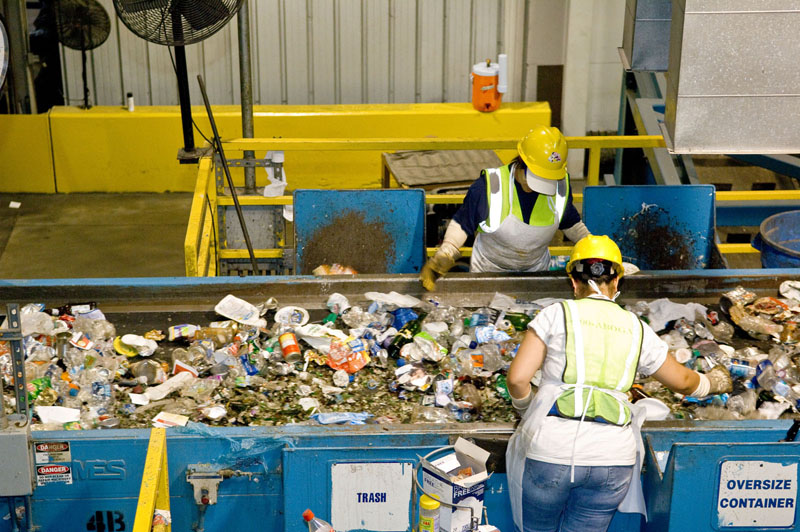Why Is Recycling Crucial?
Thanks to people such as you, recycling is once again popular, and with it, countless numbers of items are manufactured from a material that would have otherwise accumulated in our country’s landfills. It significantly affects our environment, our standard of living, and the destiny of our nation. If you are ever in the need of a professional skip service then consider browsing skip hire Timperley.
Why It Matters
We must safeguard our resources for present and future generations because we are environmental stewards.
1. Guards Wildlife and Ecosystems
Recycling helps the environment be less disturbed. Animal harm is avoided when we clear fewer trees and forests. We contribute to the preservation of ecosystems and species by minimising interruption and damage to the natural environment.
2. Protects Natural Resources
Recycling aids in the conservation of some of the natural resources that the world is running low on. Paper recycling helps preserve forests and trees. Plastic can take hundreds of years to decompose and requires a lot of solid waste when it is recycled. Additionally, the majority of plastic is made from hydrocarbons found in fossil fuels. Metal recycling decreases the requirement to mine new metal ores, while glass recycling decreases our demand for some raw resources, such as sand.
3. Saving Energy
Utilizing recycled materials instead of new, raw resources saves energy during production. Making things from recycled materials instead of virgin materials requires a lot less energy. One glass bottle recycled, for instance, can save enough energy to run a 100-watt light bulb for four hours.
4. Lessens the Demand for New Material Harvesting
Recycling lessens the requirement for raw material harvesting. People who live close to woods or near river systems are also displaced due to our growing demand for these basic commodities. Recycling lessens your prospect of causing harm to another individual’s property or neighbourhood.
5. Decreases CO2 Emissions
Recycling uses less energy, which lowers our emissions as well as our carbon footprint. We can lessen the amount of waste from landfills that release methane, which contributes to the greenhouse effect, by lowering our carbon dioxide emissions.
6. Saves Cash
Recycling trash is far less expensive than standard waste disposal and collection. More money can be saved by recycling more. Returns on deposits can assist provide additional financial motivation to recycle. Recycling can contribute to environmental protection and resource conservation. Recycling is essential, as is reducing the quantity of trash we release into the environment. By accomplishing this, we can conserve energy, lessen landfill garbage, and safeguard the environment.
7. Promotes Cooperation
Recycling fosters neighbourhood collaboration as well as aids in fundraising for hospitals, schools, and other institutions. Towns and communities become happier and cleaner thanks to these recycling drives.
8. Informs People of the Value of Environmental Protection
Education regarding environmental protection can provide subsequent generations with the information and comprehension they need to lessen pollution.
9. Provides Jobs
Every year, recycling adds new jobs. Sorters, drivers, mechanics, technicians, and other occupations are all related to recycling.
10. Reduction in Incineration
Reprocessing resources to create new goods through recycling lowers the quantities of garbage sent for cremation.
Why Is It Crucial To Reduce Waste?
Basically, waste wastes more cash, energy, and ecological resources than most of individuals know about, adds to worldwide environmental change and makes contamination. Small modifications that we make in our daily lives can have a big impact on the well-being of all living beings, as well as the country and environment we call home. When it comes to waste, most of us know the basics of separating our recyclables from general waste and putting out the correct bin on bin day. However, less of us stop to think about where our waste is going and the impact of waste on the environment.
Environmental
- Reduce the requirement for new landfills and clean fills by conserving space in the ones that already exist.
- Reduce the emissions and energy used in the production of new commodities.
- Reduce other effects (noise, dust, and traffic) on neighbouring houses and streets before beginning severe deconstruction.
Financial
- More effective product utilization in the building industry lowers the cost of obtaining fresh materials.
- Enhance productivity through precise, thorough design, with an emphasis on minimizing rework, temporary works, and errors.
- Lower the cost of garbage disposal.
- Profit from recycled materials and recovered building components for demolition.
- Gain contracts for projects with methods for waste reduction.
- Increase staff performance.
Social/Community
- Minimize the community’s exposure to harmful or bothersome wastes.
- Employees that are eager to learn new skills can be attracted and retained with the help of innovation and difficulties (such as the qualifications and knowledge needed for deconstruction).
- A high degree of customer satisfaction could improve the reputation of your firm and promote repeat sales.
- A safer worksite by using better waste management.
- Reduce the risks associated with hazardous items during demolition through more cautious disassembly procedures and proper removal and disposal procedures.
Final Words
Reducing and Recycling Waste enables you to lower the expense of waste removal. Environmental legislation compliance becomes easier and less expensive.





